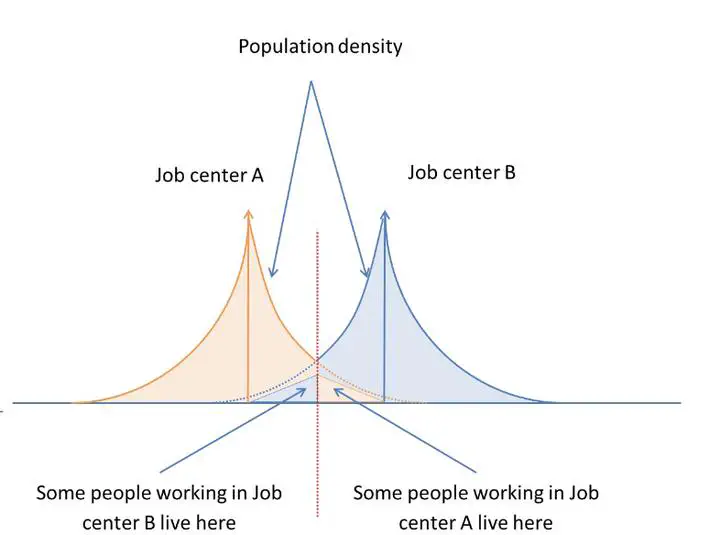
Abstract
Long term strategies, relying on city planning and travel demand management, are essential if deep GHG reduction ambitions are to be achieved in urban transport sector. However, how to precisely design such strategies remains unclear. Indeed, whereas there is a broad consensus that urban spatial structure is a key determinant in explaining travel pattern generation, the mechanisms are not yet fully understood. Especially, the interplay between commuting and localization choices leading to cross commuting in a polycentric city remains an open question, and cannot be easily explained using existing urban economics frameworks. In this study, we introduce a novel urban economic framework, fully micro-economic based, which describes land prices, population distribution and commuting travel choices in a polycentric city, with jobs locations exogenously given. It relies on the modeling of moving costs and market imperfections, especially housing-search imperfections. Using Paris as a case study, we show how this model, when adequately calibrated, reproduces available data on the internal structure of the city (rents, population densities, travel choices). A validation over the 1900-2010 period also shows that the model captures the main determinants of city shape evolution over this time. This suggests that this tool can be used to inform policy decisions.